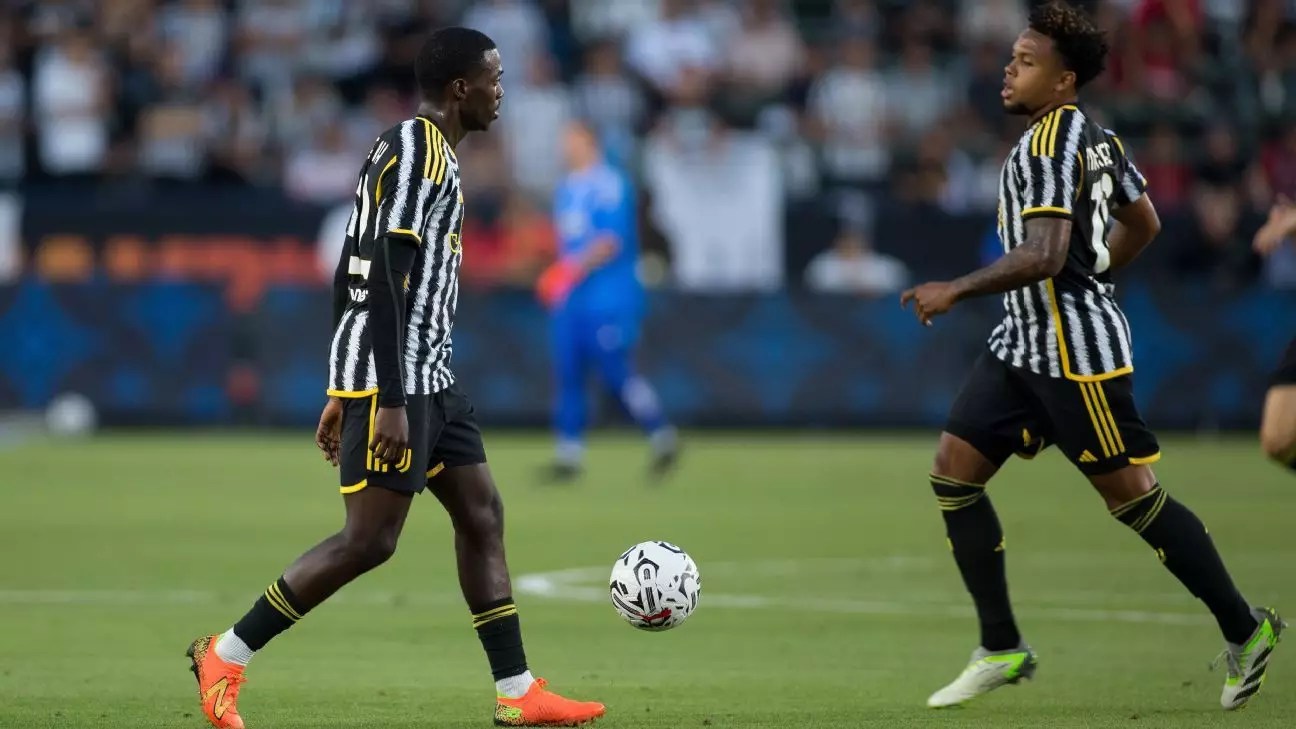The forthcoming 2025 FIFA Club World Cup, set to take place concurrently with the Concacaf Gold Cup, has raised significant concerns regarding player availability for national teams. FIFA’s recent policy shift, which does not mandate the release of players from clubs during the tournament, could have substantial ramifications for teams in Canada, Mexico, and the United States, particularly in their preparations for the 2026 World Cup, which they will jointly host.
According to the regulations published by FIFA, clubs are under no obligation to release players to national teams while their teams are participating in the Club World Cup. This decision comes with the potential to deprive national teams of key players during a critical preparatory phase before the World Cup. Notably, elite players from North America could find themselves sidelined. For example, Canada could suffer from the absence of key figures like Tajon Buchanan from Inter Milan, Bayern Munich’s Alphonso Davies, and Stephen Eustáquio from FC Porto. On the U.S. side, the loss of stars like Weston McKennie and Tim Weah from Juventus, or Borussia Dortmund’s Gio Reyna, could be devastating.
The profound impact on their availability extends beyond just a few individuals. Upcoming tournament schedules, juxtaposed against the Club World Cup’s timeframe, suggest that clubs might prioritize their roster’s commitments over national allegiances, thereby risking the integrity of the Gold Cup preparations.
Both the Club World Cup and the Gold Cup are set to commence on June 14, 2025. However, the preliminary international window from June 2-10 poses an exception where clubs must release players. This window acts as a mere logistical tick mark for teams aiming to acclimate before facing significant competition. Given that the Gold Cup is the last significant tournament before the pivotal World Cup, having an incomplete roster is less than ideal for teams desperately needing to solidify their strategies and build chemistry among players.
In light of these developments, Concacaf representatives have emphasized the importance of the Gold Cup in terms of preparation and opportunity. Yet, the excitement and anticipation for this event could be overshadowed by the inability of teams to field their desired line-ups, effectively hindering their competitive edge.
Historically, FIFA’s regulations required clubs to release players for international matches, particularly during international windows or continental championships like the Gold Cup. This previous mandate provided national teams with some assurance, allowing them to prepare adequately for vital competitions. The recent shift suggests a stark departure from past practices, highlighting FIFA’s evolving stance toward the balance of club versus national obligations.
As the Club World Cup endeavors to establish itself as a premier event in the football calendar, these regulations could inadvertently create rifts between clubs and their national federations. The latter are tasked with optimizing player performance for international fixtures, but they may do so while navigating the complexities of club commitments.
The repercussions of FIFA’s latest ruling could resonate differently across the three nations. While Canada and the U.S. scramble to assemble their optimal rosters, Mexico may face minimal disruption as none of its traditional powerhouses are set to compete in the Club World Cup. Nevertheless, clubs such as Monterrey might not release players like Gerardo Arteaga and Germán Berterame, equating to a loss of depth for the Mexican national team.
In a broader context, the prioritization of the Club World Cup by FIFA President Gianni Infantino appears to propose a strategic shift to align more closely with clubs, potentially siphoning revenues from established tournaments like the Champions League. As Infantino strives to balance the economic needs of football with national preparatory requirements, it remains to be seen whether this strategy will yield dividends for the global game or disrupt the nurturing of national talent.
As 2025 nears, it is essential for FIFA, national federations, and clubs to engage in proactive dialogue to navigate the complexities posed by conflicting tournament schedules. Collaboration will be crucial to ensure that players can participate fully in both the Club World Cup and the Gold Cup, maximizing their opportunities for development and exposure in the lead-up to the World Cup.
Ultimately, football’s governing bodies must reconcile the demands of commercial interests with the spirit of international play, recognizing that the success of national teams not only enriches the sport but also fosters broader fan engagement and support for football globally.


Leave a Reply